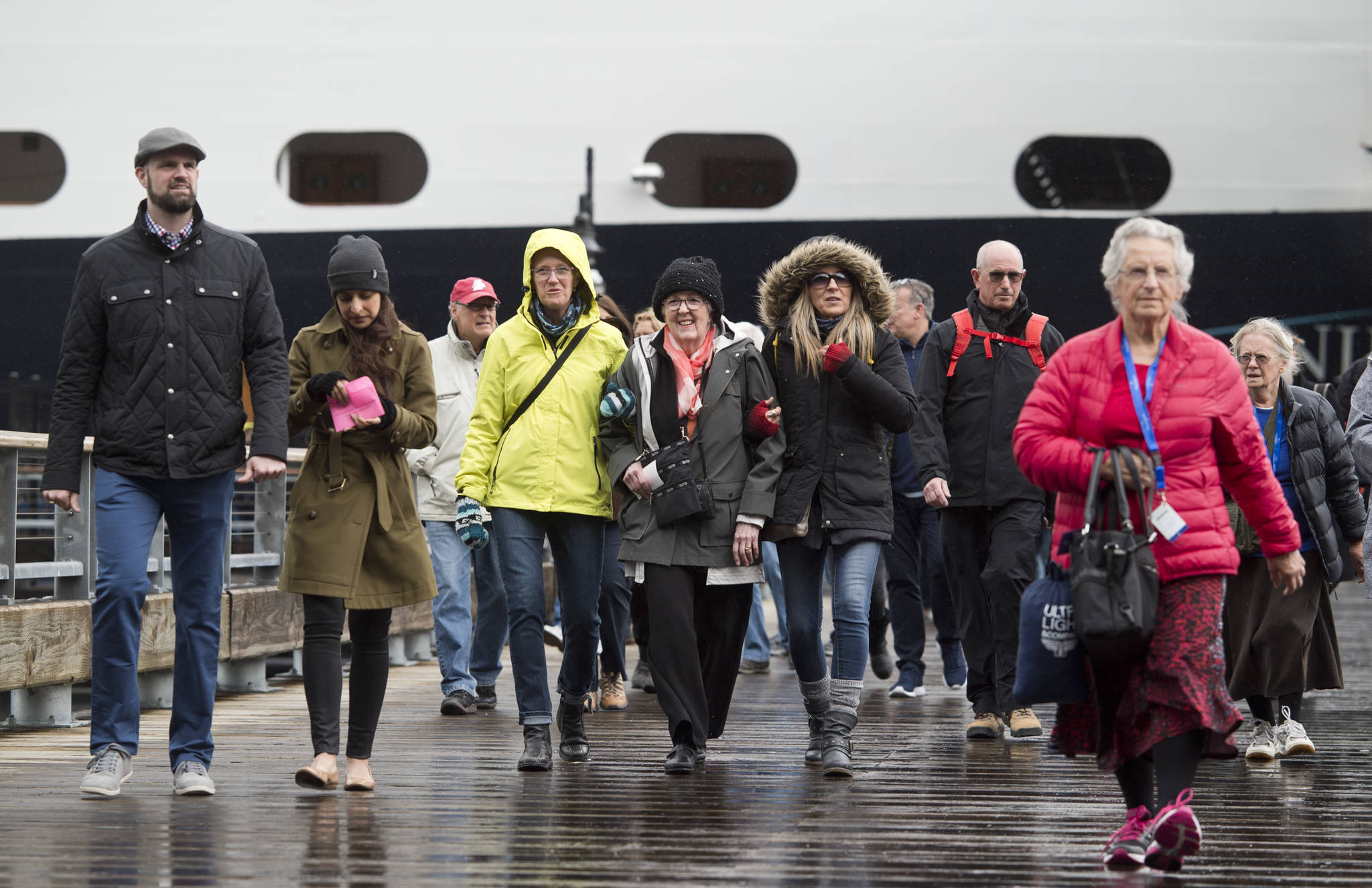The State of Alaska offered, then abruptly revoked, help to the City and Borough of Juneau in an ongoing lawsuit.
On Wednesday afternoon, the State of Alaska withdrew a legal memo it had filed Tuesday that supported the CBJ’s position in a case brought by the cruise ship industry.
The withdrawal came as industry officials gathered in Juneau as part of an annual legislative fly-in.
The legal memo, formally called an amicus brief, didn’t formally involve the state in the lawsuit, but it did offer a legal interpretation that supported the CBJ’s position.
“The amicus brief was filed in error due to internal miscommunications,” Cori Mills, a spokeswoman for the Alaska Department of Law, told the Empire by email Wednesday. “The state will continue to monitor this case, but the state is not a party to the case nor does it directly implicate state statute.”
Mills declined to say how the mistake happened, but the length and complexity of the document indicates it has been a topic of research and analysis for an extended period of time.
“It was under consideration and we have been monitoring the case closely,” Mills said.
The lawsuit brought by Cruise Lines International Association Alaska and Cruise Lines International Association, alleges the CBJ is interfering with interstate commerce and is violating the Tonnage Clause of the U.S. Constitution by collecting $8 per cruise ship passenger (also known as a “head tax”) with a $3 port fee and a $5 additional fee.
CLIA specified in its original April 2016 complaint that it had a problem with the city’s under-construction Whale Park. The project, which built a life-sized sculpture of a whale near the Douglas Bridge, was funded through private donations, but CLIA alleges that the head tax money the city used to fund the seawalk and park surrounding the whale was illegal.
In 19 pages, the amicus brief filed and withdrawn by the state cites legal precedents from across the country that back the CBJ’s interpretation that the fee collection is legal.
“Because Juneau’s fees are for services provided to the cruise ship industry and cruise ship passengers, and are not imposed for the privilege of entering Juneau’s port, the fees do not violate the Tonnage Clause,” states the document, which is still available in court filings.
It goes on to explain that because the CBJ is not levying fees on cruise ships for the privilege of entering Juneau’s ports and harbors, the Tonnage Clause does not apply. Moreover, the fees are for services provided to people, not ships.
“Specifically, the courts have held that fees collected to fund restroom facilities, parking, trash disposal, breakwater, lights, and security are not a duty of tonnage because services are provided in exchange for the fee,” the document states.
In a November interview with KTOO-FM, Assistant Attorney General Chris Peloso told the station that the state would intervene if the industry’s lawsuit challenged the state’s per-passenger head tax. This week’s memo would have amounted to the throw of a life preserver: help without jumping in.
An amicus brief can be filed by someone who has a strong interest in the case but is not listed as a defendant or plaintiff.
It was drafted by senior assistant attorney general Mary Ann Lundquist, who is located in Fairbanks. Lundquist referred an interview request to Mills.
Jonathan Benner, the lead attorney on the case for the cruise industry, declined to comment when reached by phone Wednesday morning, saying that his office had received the brief only yesterday amid several other filings and needed time to analyze it.
CBJ manager Rorie Watt said he wasn’t sure what the state’s actions meant, and city attorney Amy Mead answered questions likewise.
“It’s very curious,” she said.
According to Watt, the city attempted to negotiate an end to the lawsuit last year but was unsuccessful. The CBJ Assembly has allocated or spent more than $800,000 defending itself from the lawsuit.
• Contact reporter James Brooks at james.k.brooks@juneauempire.com or call 523-2258.

